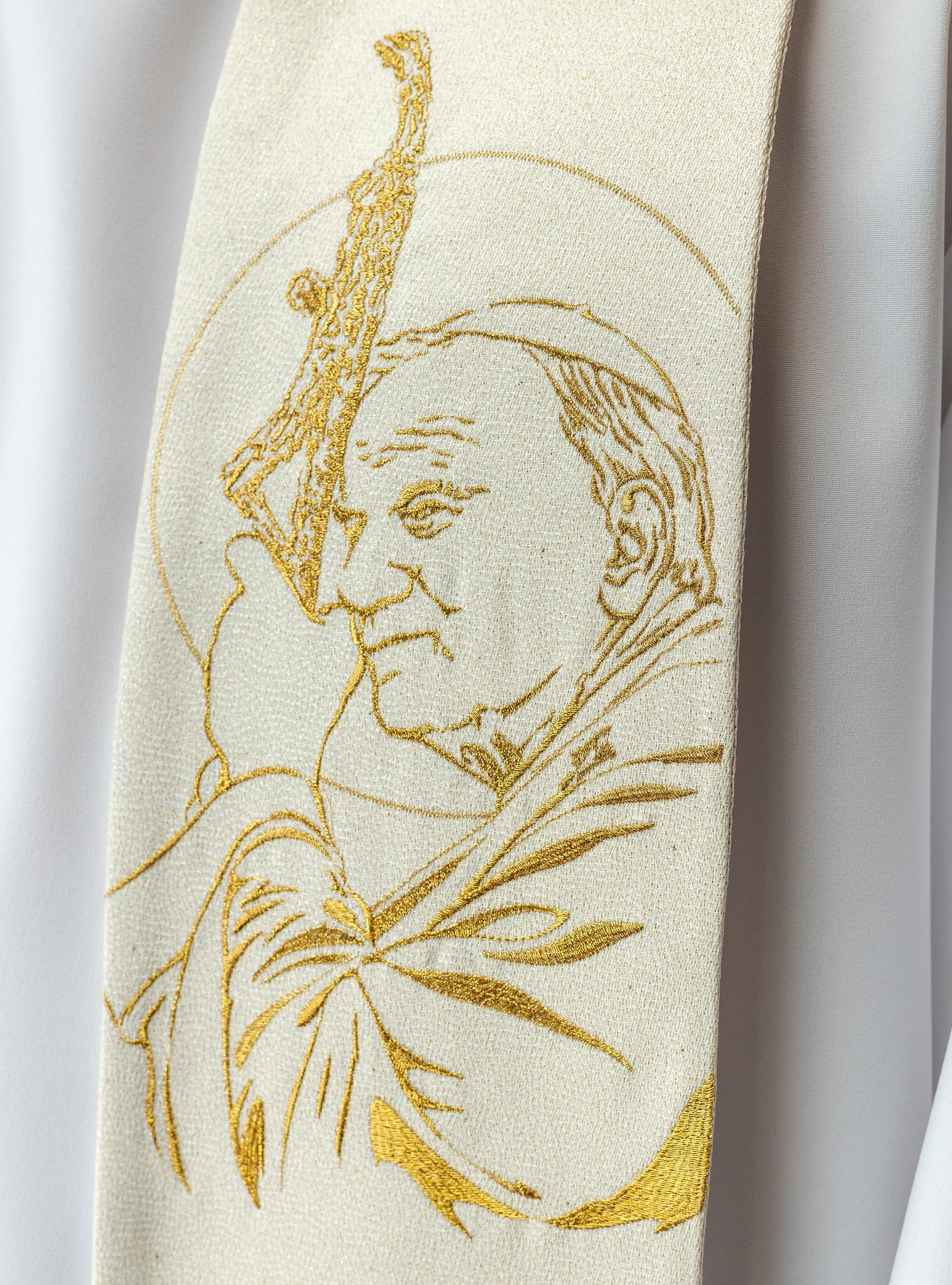
How to Minister to the Sick and Elderly? A Guide for Clergy and Parishioners
How to Minister to the Sick and Elderly: A Comprehensive Guide for Caregivers
Ministry to the sick and elderly is one of the most important and demanding tasks in the Church. It is a service full of love, patience, and understanding, requiring caregivers not only theological knowledge but, above all, a great heart and empathy. In the face of advancing age and diseases affecting an increasing part of society, building effective pastoral structures for these groups becomes a priority. This article aims to outline the key aspects of this ministry, from its theological foundations to practical aspects of organization, challenges, and best practices.
What is Ministry to the Sick and Elderly?
Ministry to the sick and elderly is a purposeful and organized activity of the Church, aimed at supporting individuals experiencing physical, mental, and social limitations associated with age or illness. It is not limited to administering the holy sacraments but encompasses holistic accompaniment of a person on their journey to God, with respect for their dignity and individual needs.
Theological Foundations of the Ministry
The theological basis of ministry to the sick and elderly can be found in the teachings of Jesus Christ, who showed particular care for those suffering. His words, "I was sick and you visited me" (Matthew 25:36), emphasize the importance of concrete help to one's neighbor as an expression of love for God. Illness and old age, despite their difficult nature, can become a time of deepening faith, reconciliation with God and people, and an opportunity to witness to the hope that comes from faith in the resurrection.
Key Aspects of Ministry to the Sick and Elderly
Effective ministry to these groups requires a multidimensional approach, encompassing spiritual, social, emotional, and material aspects.
Building Relationships and Openness to Others
The foundation of every pastoral ministry is building authentic relationships. For the elderly and sick, who often experience loneliness and isolation, the presence of another person is invaluable. Key is showing respect, listening attentively, and showing interest in their life, history, and experiences. Simple gestures, such as conversation, common prayer, or even shared silence, can bring enormous support.
Spiritual Support
Spiritual support is the heart of ministry to the sick and elderly. It includes:
- Regular Visits: Not only on holidays or for receiving sacraments but as a constant element of pastoral care.
- Prayer: Common prayer, reciting the rosary, reading the Holy Scriptures, as well as prayer for the sick and elderly by the parish community.
- Sacraments: Administering the sacrament of penance and reconciliation, anointing of the sick, and Holy Communion (including in the form of viaticum). It is important to create convenient conditions for receiving these graces, for example, by providing special liturgical vestments, vessels, or equipment that facilitate the administration of the sacraments.
- Conferences and Spiritual Reflections: Adapted to the capabilities of the audience, helpful in deepening faith and hope.
Material and Practical Support
In addition to spiritual care, practical support is often necessary. This may include:
- Help with Daily Activities: Shopping, help at home, companionship during doctor's visits.
- Financial or Material Support: As far as the parish is able or with the involvement of charitable organizations.
- Facilitating Access to Spiritual Goods: Providing Catholic press, religious books, as well as the opportunity to participate in broadcasts of Holy Masses for those who cannot attend in person.
Forms of Activity and Integration
Ministry to the sick and elderly should aim to counteract isolation and build a sense of belonging to the community. It is worth organizing:
- Bible and Prayer Meetings: Both in homes and in parish halls.
- Joint Outings: Pilgrimages, trips to sacred places, outings to the theater or cinema, adapted to the capabilities of the participants.
- Activities of Parish Support Groups: Senior groups, rosary circles, self-help groups.
- Intergenerational Meetings: Integration with youth and children, e.g., jointly preparing Christmas decorations, baking cakes.
Organization of Ministry
Effective ministry to the sick and elderly requires a well-organized structure and the involvement of many people.
Pastoral Team
Key is the establishment of a team consisting of a priest, nuns, extraordinary ministers of Holy Communion, volunteers, and committed laypeople. Clear definition of roles and responsibilities is essential for smooth operation.
System of Visits and Support
Creating a clear database of the sick and elderly, with their needs and contact information noted, is the basis for organizing regular visits and providing assistance. It is important to create a system of shifts and mutual support among volunteers.
Cooperation with Institutions
Invaluable is cooperation with local institutions such as hospitals, social welfare homes, health centers, or parish events. Such partnerships can significantly expand the reach and effectiveness of pastoral activities.
Training and Formation
Caregivers should be properly prepared for their role. Regular training in the psychology of old age, communication with the sick, basic care, as well as spiritual formation are crucial for their development and effectiveness in the ministry.
Challenges and Good Practices
Ministry to the sick and elderly involves many challenges, but the application of proven practices can significantly facilitate this service.
Challenges
- Loneliness and Isolation: Many elderly and sick people suffer from feelings of loneliness, which can lead to depression and apathy.
- Physical Limitations: Diseases and old age often prevent independent functioning and hinder access to places of worship.
- Financial Problems: Low pensions and high treatment costs can be a significant burden.
- Lack of Sufficient Volunteers: Many parishes lack helping hands.
- Changing Needs: The needs of the sick and elderly are dynamic and require continuous adaptation of forms of assistance.
Good Practices
- Individual Approach: Every person is different, so it is crucial to know the individual needs and life history of each person.
- Building a Support Network: Involvement of parishioners, family members, volunteers, and institutions.
- Regular Communication: Maintaining constant contact with those under care and their families.
- Taking Care of Caregivers: Remembering one's own spiritual and physical needs in order to serve others effectively.
- Appreciation and Reward: Showing gratitude to volunteers and supporting them in their ministry.
- Use of Modern Technologies: Online broadcasts of Holy Masses, telephones, video conferences can be a valuable tool in reaching out to digitally excluded individuals.
Specifics of Ministry to the Elderly
Old age itself brings specific needs and challenges. It is important, when undertaking this type of ministry, to remember a few key aspects:
Respect for Experience and Wisdom
The elderly possess a wealth of life experiences and wisdom that they can share. Ministry should appreciate this and create space for its transmission, e.g., through conversations, creating parish chronicles, or organizing intergenerational meetings.
Care for Dignity
Even in the face of total dependence on others, every person retains their inalienable dignity as a child of God. Pastors and volunteers should show the utmost respect, caring for the intimacy and privacy of those under their care.
Preparation for the End of Life
Often, the elderly begin to reflect on the end of life. Ministry should accompany them in this process, offering spiritual support, discussing the hope that comes from faith, and helping to regulate earthly affairs in accordance with the Gospel.
Specifics of Ministry to the Sick
Illness, regardless of its nature, is a profound experience for a person, affecting their psyche, emotions, and relationships with the environment.
Acceptance of Suffering
Helping to accept suffering, not as an end in itself, but as a path to purification and union with the suffering Christ, is an important element of the ministry. It is important not to negate the pain but to accompany in its experience and give it meaning.
Hope in the Face of Illness
The Christian faith provides a powerful source of hope. Pastors should help the sick find this hope, often through the testimony of others who have gone through similar experiences, or by emphasizing the importance of the resurrection.
Need for Presence
Many sick people need primarily the presence of another person. Sometimes it is enough to simply sit by the bed, hold their hand, talk about something other than the illness to bring relief.
Summary
Ministry to the sick and elderly is a beautiful but responsible mission. It requires us to have an open heart, patience, sensitivity, and a willingness to learn. Remembering the theological foundations, building authentic relationships, offering comprehensive support – spiritual, material, and practical – we can become a living witness of God's love for those experiencing the hardships of illness and old age. The key is proactivity, systematic approach, and continuous improvement of skills to best serve those who most need our attention and care. If you are looking for high-quality liturgical vestments that can be helpful in ministry at the altar, e.g., during the administration of Holy Communion or other sacramental rites, we invite you to familiarize yourself with our offer at haftinausa.com, where you will find a wide selection of vestments for priests, deacons, and altar servers, made of the highest quality materials and with attention to every detail.
```




